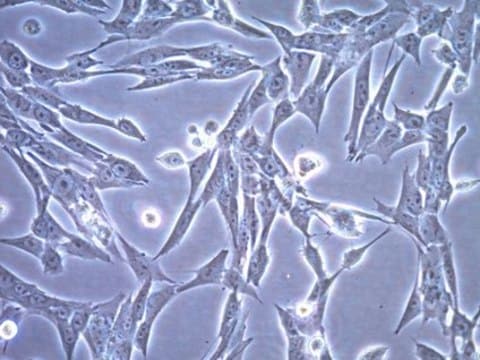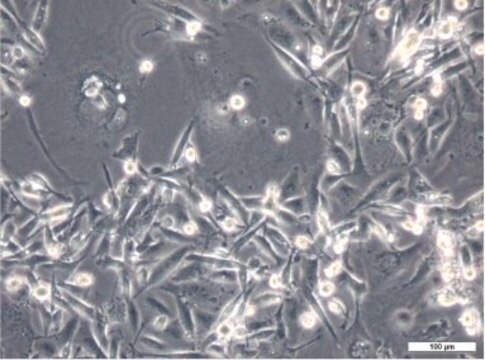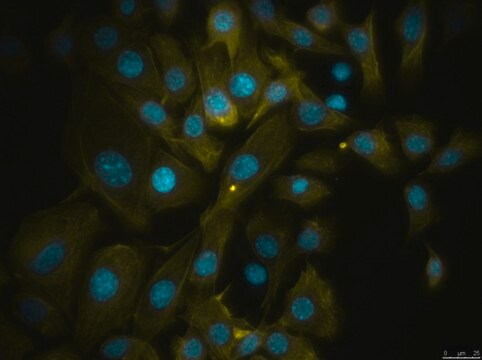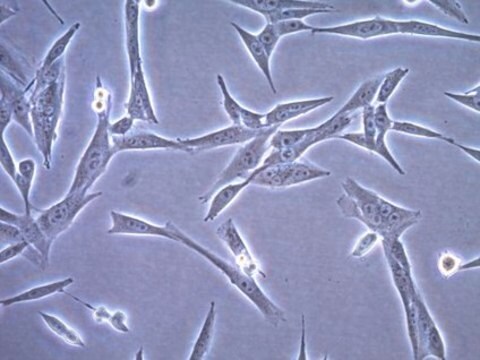About This Item
UNSPSC Code:
41106514
Productos recomendados
biological source
human blood
growth mode
Suspension
karyotype
Not specified
morphology
Lymphoblastoid
products
Not specified
receptors
Not specified
technique(s)
cell culture | mammalian: suitable
relevant disease(s)
cancer
shipped in
dry ice
storage temp.
−196°C
Categorías relacionadas
Cell Line Origin
Human acute myeloblastic leukaemia
Cell Line Description
ML-1 is one of three celll lines isolated in 1978 from the peripheral blood of a 24 year old male patient with acute myeloblastic leukaemia. The cells can convert to more mature cells by the use of DMSO. The Y chromosome could not be detected in this cell line by short tandem repeat (STR)-PCR analysis when tested at ECACC. It is a known phenomenon that due to the increased genetic instability of cancer cell lines the Y chromosome can be rearranged or lost resulting in lack of detection. The cell line is identical to the source provided by the depositor based on the STR-PCR analysis.
Application
ML-1 has been used to compare the cell response to mafosfamide cyclohexylamine salt, 4-hydro-peroxy-cyclophosphamide and β-D-glucose-isophosphoramide mustard, which are oxazaphosphorine agents.
DNA Profile
STR-PCR Data: Amelogenin: X
CSF1PO: 10,11
D13S317: 9,12
D16S539: 9,12
D5S818: 12
D7S820: 9,11
THO1: 7,9.3
TPOX: 8,10
vWA: 16
CSF1PO: 10,11
D13S317: 9,12
D16S539: 9,12
D5S818: 12
D7S820: 9,11
THO1: 7,9.3
TPOX: 8,10
vWA: 16
Culture Medium
Subculture Routine
Maintain cultures between 2-9 x100,000 cells/ml; 5% CO2; 37°C. Freeze in 10% DMSO + 90% FBS. Immediately after resuscitation, pellet cells by centrifugation at 150 x g for 5 minutes and resuspend the cell pellet in fresh medium. This is to remove the presence of DMSO which may cause differentiation of the cells if allowed to remain.
Other Notes
Additional freight & handling charges may be applicable for Asia-Pacific shipments. Please check with your local Customer Service representative for more information.
Certificados de análisis (COA)
Busque Certificados de análisis (COA) introduciendo el número de lote del producto. Los números de lote se encuentran en la etiqueta del producto después de las palabras «Lot» o «Batch»
¿Ya tiene este producto?
Encuentre la documentación para los productos que ha comprado recientemente en la Biblioteca de documentos.
Nuestro equipo de científicos tiene experiencia en todas las áreas de investigación: Ciencias de la vida, Ciencia de los materiales, Síntesis química, Cromatografía, Analítica y muchas otras.
Póngase en contacto con el Servicio técnico





